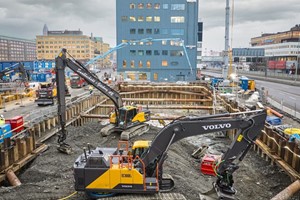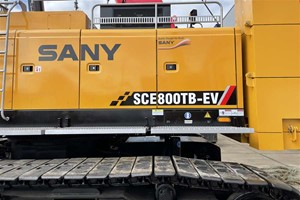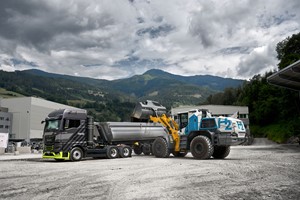Volvo Construction Equipment, in conjunction with its partners, has conducted extensive tests on electric construction machinery in real-world settings at construction sites in Gothenburg. The findings indicate that electric machines are on par with diesel counterparts in terms of performance, while offering additional benefits such as zero exhaust emissions, reduced noise levels, and improved working conditions.
Despite the prevalent use of diesel-powered machinery in construction today, the imperative of combating climate change necessitates a shift towards fossil fuel-free practices. The Swedish field test, spearheaded by Volvo Construction Equipment, underscores the potential of electrification in reducing greenhouse gas emissions, noise pollution, and other detrimental outputs, thus contributing significantly to the advancement of sustainable construction practices.
The Electric Worksite project in Gothenburg, led by Volvo Construction Equipment and its partners, aimed to foster collaboration among stakeholders across the value chain to explore the opportunities and requirements for utilizing electric equipment in urban settings. By testing electric machines, energy storage solutions, and charging infrastructure in diverse urban environments, the project adopted a systemic approach to address the multifaceted needs and challenges of electrification in construction.
The tests involved a range of electrically powered construction equipment, including wheeled and crawler excavators, wheel loaders, and load carriers spanning 3.5 to 30 tonnes. These machines were powered either by batteries or connected via cables. The outcomes of the study revealed several key findings: Electric construction machines can match the performance of their fossil-fueled counterparts in urban construction projects. Operators and workers experience several positive effects on machine handling and the overall working environment with electric machines. Successful electrification hinges on proactive planning and adaptability, akin to other construction projects. Meeting new power supply requirements involves tailored solutions based on machine types and available electricity, encompassing electrical cabinets, mobile charging stations, cable connections, and potentially energy storage units. End customers need to be educated about the benefits and challenges of electric machines, as well as existing business and contractual considerations for contractors and subcontractors.
Volvo CE, a pivotal partner in the collaboration, has played a central role in managing the research project, overseeing tests, and providing electric machinery of various sizes and models, along with technical solutions for charging infrastructure. Bobbie Frank, Research Manager at Volvo CE, emphasized the importance of establishing a robust supporting infrastructure for electric machines and highlighted the successful outcomes achieved through collaborative efforts across the public and private sectors. In all instances, electric machines demonstrated comparable, if not superior, performance to their combustion engine counterparts, while mitigating harmful emissions and noise disturbances.
By Chris Randall













